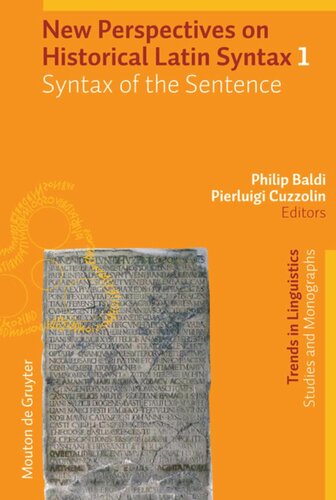

Most ebook files are in PDF format, so you can easily read them using various software such as Foxit Reader or directly on the Google Chrome browser.
Some ebook files are released by publishers in other formats such as .awz, .mobi, .epub, .fb2, etc. You may need to install specific software to read these formats on mobile/PC, such as Calibre.
Please read the tutorial at this link: https://ebookbell.com/faq
We offer FREE conversion to the popular formats you request; however, this may take some time. Therefore, right after payment, please email us, and we will try to provide the service as quickly as possible.
For some exceptional file formats or broken links (if any), please refrain from opening any disputes. Instead, email us first, and we will try to assist within a maximum of 6 hours.
EbookBell Team

4.0
46 reviewsThis is the first of a multi-volume set dealing with the long-term evolution of Latin syntax, roughly from the 4th century BCE up to the 6th century CE. There are six pivotal chapters in this volume, each dealing with a subject which is critical to the understanding of the syntactic system. Topics covered include contact phenomena (from Greek and Semitic), the development of word order, particles, coordination, and the syntax of questions and answers. The volume is introduced by the editors in an explanatory "Prolegomena", and the textual parameters are set in a chapter on literary genres and sociolinguistics. Crafted in a functional-typological framework, chapters are user-sensitive, with a minimum of technical jargon and formalism, making them accessible to the widest range of readers.